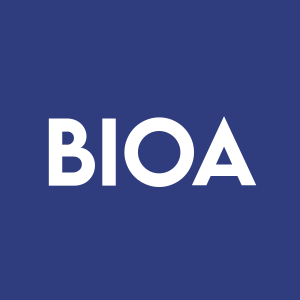BioArctic: New data on lecanemab presented at the 2024 AD/PD™ congress
BioArctic's founder, Professor Lars Lannfelt, presented data on the binding properties of the anti-amyloid-beta (Aβ) antibody lecanemab and other anti Aβ antibodies. Lecanemab was designed to preferentially bind soluble (protofibrils), as well as insoluble Aβ aggregates (fibrils), to reduce both Aβ protofibrils and Aβ plaques in the brain. The difference in binding to CAA[1] was presented, with lecanemab having lower binding to CAA than most other antibodies. This could explain the difference in the adverse event ARIA[2] seen between different antibodies, with lecanemab showing relatively low incidence of ARIA.
In another presentation Professor Christopher van Dyke presented extended efficacy results from the Phase 3 Clarity AD open label extension study of lecanemab in Alzheimer's disease up to 30 months, showing continued benefit with lecanemab treatment. Professor van Dyke also highlighted data from the tau sub-study of Clarity AD, which showed that all cohorts of the tau population benefitted from treatment with lecanemab. Data from the low tau population, representing earlier stages of the disease, indicated that intervening in early stages of disease may be particularly impactful in stabilizing the disease process.
"It is inspiring to see all the data presented at the conference further strengthening lecanemab's efficacy and safety results, specifically from the earlier cohorts of patients which alludes to the importance of early diagnosis and treatment," said Gunilla Osswald, CEO at BioArctic. "It has also been impressive to see how the field is moving forward, and we have seen encouraging data regarding both alpha-synuclein and blood brain barrier transportation approaches."
Lecanemab is the result of a long-standing collaboration between BioArctic and Eisai, and the anti Aβ protofibril antibody was originally developed by BioArctic based on the work of Professor Lars Lannfelt and his discovery of the Arctic mutation in Alzheimer's disease.
Eisai serves as the lead of lecanemab development and regulatory submissions globally with both Eisai and Biogen co-commercializing and co-promoting the product and Eisai having final decision-making authority. BioArctic has the right to commercialize lecanemab in the Nordic region, pending European approval, and currently Eisai and BioArctic are preparing for commercialization in the region.
This release discusses investigational uses of an agent in development and is not intended to convey conclusions about efficacy or safety. There is no guarantee that such investigational agents will successfully complete clinical development or gain health authority approval.
The information was released for public disclosure, through the agency of the contact persons below, on March 11, 2024, at 08.00 a.m. CET.
For further information, please contact:
Oskar Bosson, VP Communications and IR
E-mail: oskar.bosson@bioarctic.se
Phone: +46 70 410 71 80
Jiang Millington, Director Corporate Communication and Social Media
E-mail: jiang.millington@bioarctic.se
Phone: +46 79 33 99 166
About lecanemab (generic name,
Lecanemab is the result of a strategic research alliance between BioArctic and Eisai. Lecanemab is a humanized immunoglobulin gamma 1 (IgG1) monoclonal antibody directed against aggregated soluble (protofibril) and insoluble forms of amyloid-beta (Aβ). In the
In
Eisai has also submitted applications for approval of lecanemab in 14 different countries, including EU,
Eisai has completed a lecanemab subcutaneous bioavailability study, and subcutaneous dosing is currently being evaluated in the Clarity AD (Study 301) open-label extension (OLE) study. A maintenance dosing regimen has been evaluated as part of the Phase 2b study (Study 201).
Since July 2020 Eisai's Phase 3 clinical study (AHEAD 3-45) for individuals with preclinical AD, meaning they are clinically normal and have intermediate or elevated levels of amyloid in their brains, is ongoing. AHEAD 3-45 is conducted as a public-private partnership between the Alzheimer's Clinical Trial Consortium that provides the infrastructure for academic clinical trials in AD and related dementias in the
Since January 2022, the Tau NexGen clinical study for Dominantly Inherited AD (DIAD), that is conducted by Dominantly Inherited Alzheimer Network Trials Unit (DIAN-TU), led by Washington University School of Medicine in
About the collaboration between BioArctic and Eisai
Since 2005, BioArctic has a long-term collaboration with Eisai regarding the development and commercialization of drugs for the treatment of Alzheimer's disease. The most important agreements are the Development and Commercialization Agreement for the lecanemab antibody, which was signed 2007, and the Development and Commercialization agreement for the antibody Leqembi back-up for Alzheimer's disease, which was signed 2015. In 2014, Eisai and Biogen entered into a joint development and commercialization agreement for lecanemab. Eisai is responsible for the clinical development, application for market approval and commercialization of the products for Alzheimer's disease. BioArctic has the right to commercialize lecanemab in the Nordic region under certain conditions and is currently preparing for commercialization in the Nordics together with Eisai. BioArctic has no development costs for lecanemab in Alzheimer's disease and is entitled to payments in connection with regulatory approvals, and sales milestones as well as royalties on global sales.
About BioArctic AB
BioArctic AB (publ) is a Swedish research-based biopharma company focusing on innovative treatments that can delay or stop the progression of neurodegenerative diseases. The company invented Leqembi® (lecanemab) - the world's first drug proven to slow the progression of the disease and reduce cognitive impairment in early Alzheimer's disease. Leqembi has been developed together with BioArctic's partner Eisai, who are responsible for regulatory interactions and commercialization globally. In addition to Leqembi, BioArctic has a broad research portfolio with antibodies against Parkinson's disease and ALS as well as additional projects against Alzheimer's disease. Several of the projects utilize the company's proprietary BrainTransporter™ technology, which has the potential to actively transport antibodies across the blood-brain barrier to enhance the efficacy of the treatment. BioArctic's B share (BIOA B) is listed on Nasdaq Stockholm Large Cap. For further information, please visit www.bioarctic.se.
[1] CAA, or cerebral amyloid angiopathy, is a condition characterized by the accumulation of amyloid proteins in the walls of the blood vessels in the brain.
[2] ARIA, or Amyloid-Related Imaging Abnormalities, refers to changes seen on MRI scans associated with amyloid-targeting therapies for Alzheimer's disease, and can manifest as edema (ARIA-E) or hemorrhage (ARIA-H)
This information was brought to you by Cision http://news.cision.com
The following files are available for download:
New data on lecanemab presented at the 2024 AD/PDâ„¢ congress |
![]() View original content:https://www.prnewswire.com/news-releases/bioarctic-new-data-on-lecanemab-presented-at-the-2024-adpd-congress-302085063.html
View original content:https://www.prnewswire.com/news-releases/bioarctic-new-data-on-lecanemab-presented-at-the-2024-adpd-congress-302085063.html
SOURCE BioArctic









